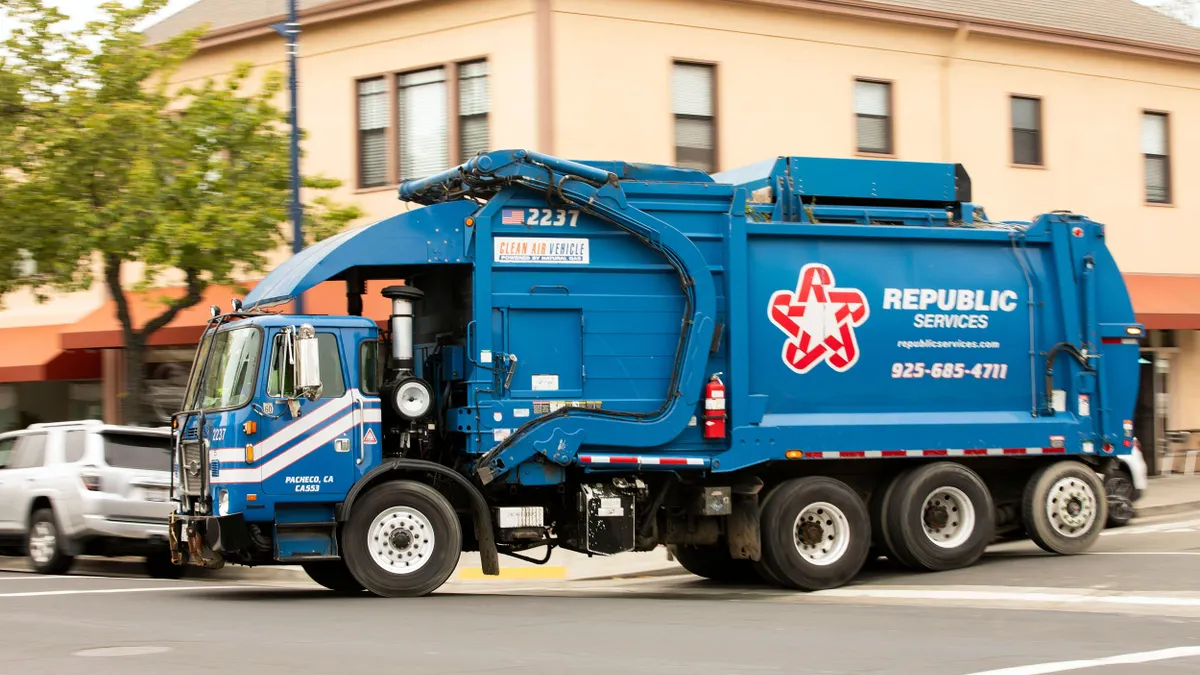As single-use plastic bags clutter the homes of American consumers, local governments from California to Texas have stepped in to try to kick-start greater plastic bag recycling efforts. Yet, the well-intentioned efforts haven't always been well-received.
In early June, a five-month-old Dallas, TX ordinance levying a nickel-per-bag fee on plastic bags was repealed by the Dallas City Council. Dallas leaders had grudgingly backed down from continuing to enforce the fee after several plastic bag manufacturers contested it, saying it violated state law, and filing suit. The Council had approved the fee in 2014, and it had only taken effect in January.
Hilex Poly Co., The Interplast Group, Superbag Operating, Ltd., and Advanced Polybag, Inc. dropped the lawsuit after the Council repealed the nickel fee. The group said the action would save everyone time and money since the fee violated existing state law. Additionally, plastic bag industry experts have said the suit's dismissal was a significant win for the industry, which employs more than 30,000 people.
While many point fingers at plastic bag makers for the possible negative effects plastic bags can have for the environment, the notion of plastic bag usage is not entirely negative. To get a different take on the plastic bag conundrum, Waste Dive spoke with Phil Rozenski, senior director of Novolex — the Hartsville, SC,-based packaging company that owns Hilex Poly Co. He mentioned, among other things, the many people supported by the plastic bag industry and how the industry is working toward greater sustainability in its products.
WASTE DIVE: How is the industry working to mitigate the effects of plastic bag pollution?
ROZENSKI: We work with retailers to increase recycling, and recycled 1 billion pounds [of bags] last year, including dry cleaning bags, newspaper bags and single-use retail bags. We are also improving the amount of recycled content in new bags — in 2014, we had over 30% recycled content.
WD: It seems like there was a time not so long back when many items were carried from the store in paper bags. When did the transition to single-use plastic bags happen?
ROZENSKI: Retailers brought about the transition to the poly bags in the 1980s and 1990s.
WD: Are retailers like supermarkets doing enough to recycle single-use plastic bags?
ROZENSKI: You have some that do better than others. Our largest partner is Kroger. Their bag-to-bag program is a leader…Twenty years ago, most retailers had a white bag. Kroger uses a tan bag, because we can use more of that type of bag for recycling. A few years ago, Wal-Mart changed to a gray bag with more recycled content.
WD: You’ve said plastic bags are about being sustainable. How is that so?
ROZENSKI: I think most people would be surprised to know that our industry is about sustainability. We actually are designing an incredibly recyclable product. Plastic retail bags are about half of 1% of all litter.
WD: What kinds of numbers are we talking about? How much plastic bag recycling really is being done in a sustainable manner?
ROZENSKI: About 12% of plastic bags that are manufactured are recycled [into new bags], but about 75% of plastic retail bags are reused. And about 72% to 87% of all plastic bags are reused or recycled. There’s not a lot of them remaining to be recycled. Very few of them actually go to a landfill.
WD: Is it the rule or exception for grocery chains to accept customers’ single-use plastic bags for recycling?
Rozenski: Over the last 10 years, it’s become the rule. It’s the right thing to do and it’s the profitable thing to do. If it is done right, [single-use bag recycling] is an income stream for retailers.
WD: Why does this whole debate about single-use bags matter?
ROZENSKI: We think people should have a choice in using a plastic bag, paper bag, or reusable plastic bag…This absolute regulation of one or another is a false argument. Within our segment, around 12,000 people are employed. For every person we employ it generates about two other jobs in the community, in a variety of industries.
WD: But how much are these bags really being recycled? Aren’t they tossed away right after their first use?
ROZENSKI: Ironically, most reusable bags are used three times before they’re disposed of.
WD: Isn’t sustainability a vague concept, as well as being a moving target? And if so, who cares?
ROZENSKI: All of our products have a sustainability share. We built our own recycling facility so we can recycle plastic bags from grocery stores… An important thing about sustainability is keeping good faith with the consumer.
WD: What else should people know about the industry, or about your company?
ROZENSKI: The most important thing isn’t as much about manufacturing products as it is about people and sustainability. It’s pride — our employees take pride in what they can do, sustainability-wise. That’s 5,100 employees.

















